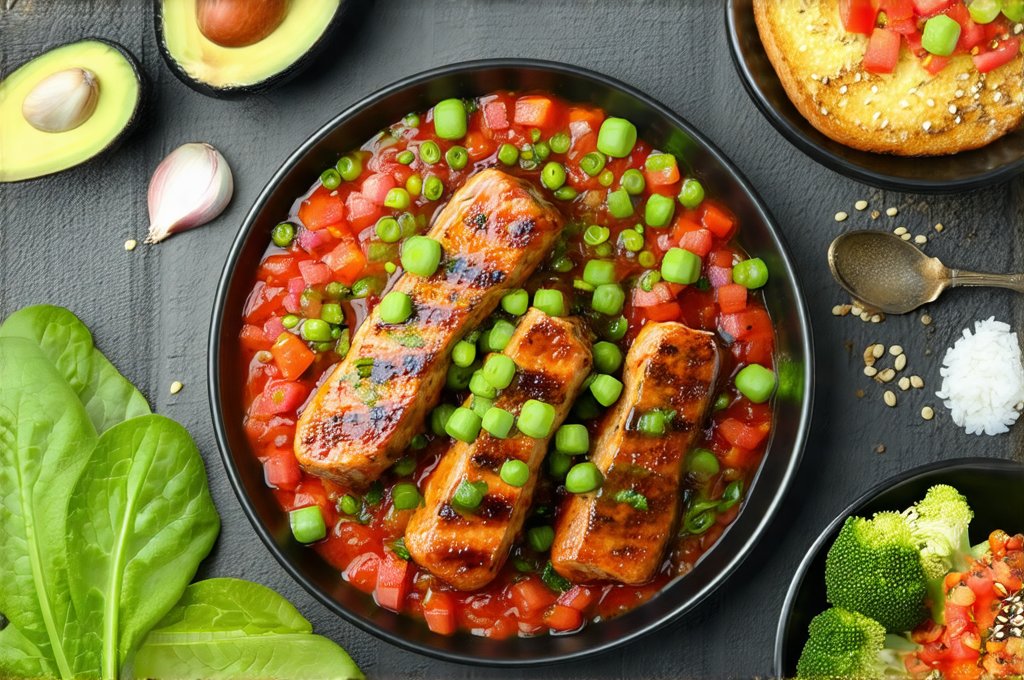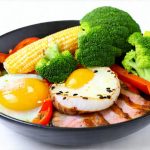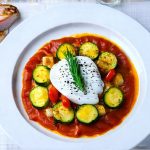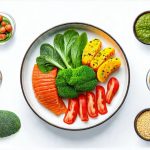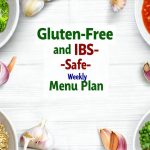Gastroesophageal reflux disease (GERD) is a common digestive disorder affecting millions worldwide. Characterized by frequent heartburn, regurgitation, and other uncomfortable symptoms, GERD can significantly impact daily life. Managing this condition often involves dietary modifications alongside medication and lifestyle changes. Many individuals find that specific foods exacerbate their GERD symptoms, while others offer relief. This leads to the need for careful meal planning – not just what you eat, but when and how you prepare it. A crucial part of managing GERD effectively is crafting meals, particularly lunch and dinner, that minimize acid reflux triggers and promote digestive comfort.
The challenge isn’t necessarily about eliminating entire food groups (though some individuals may need to do so based on personal experience), but rather about making informed choices and preparing foods in a way that reduces their potential to worsen GERD symptoms. This involves understanding which ingredients are generally well-tolerated, employing cooking methods that minimize fat content, and portion control. It’s also important to consider the timing of meals – avoiding large meals before bedtime, for example – and allowing sufficient time for digestion. Ultimately, a GERD-friendly diet is about finding what works best for you through mindful experimentation and observation. Considering how external factors like office stress can impact digestion is also key to managing GERD effectively.
Understanding GERD Triggers & Tolerated Foods
Many foods contribute to GERD symptoms by increasing stomach acid production or relaxing the lower esophageal sphincter (LES), the muscle that prevents stomach acid from flowing back into the esophagus. Common triggers include: fatty/fried foods, chocolate, mint, citrus fruits/juices, tomatoes/tomato-based products, spicy foods, carbonated beverages, caffeine, and alcohol. However, tolerance varies significantly between individuals. What bothers one person might not affect another. A food diary can be extremely helpful in identifying personal trigger foods. Conversely, certain foods are generally well-tolerated by people with GERD. These include: lean proteins (chicken, fish, tofu), whole grains (oatmeal, brown rice), vegetables (broccoli, green beans, potatoes, carrots), fruits (bananas, melon, apples), and healthy fats in moderation (avocado, olive oil). Learning about probiotic foods can also help soothe GERD symptoms.
It’s also important to consider how food is prepared. Baking, grilling, steaming, and poaching are preferred methods over frying or adding excessive amounts of fat. Smaller, more frequent meals can also help reduce the pressure on the LES and prevent acid reflux. Staying hydrated by drinking plenty of water throughout the day is beneficial for digestion and overall health. Remember, focusing on what you can eat rather than solely on restrictions can make dietary changes feel less overwhelming and more sustainable.
Building GERD-Friendly Lunch & Dinner Meals
Creating satisfying and nourishing lunch and dinner meals that don’t aggravate GERD requires a bit of planning, but it’s entirely achievable. The key is to combine tolerated foods in balanced portions. For lunches, consider options like grilled chicken salad with mixed greens and olive oil vinaigrette, lentil soup with whole-grain bread, or turkey breast on whole wheat with avocado. Dinners can be built around lean protein sources like baked salmon with roasted vegetables (broccoli, carrots, potatoes) and brown rice, or a stir-fry using tofu, green beans, and bell peppers served with quinoa. Portion control is crucial – avoid overeating, even with GERD-friendly foods. Planning a dinner menu that prevents nighttime discomfort can also significantly improve sleep quality.
When preparing meals, prioritize low-fat cooking methods and minimize the use of acidic ingredients. Instead of tomato sauce, explore alternatives like pesto (in moderation) or herb-infused olive oil. Avoid spicy seasonings that can irritate the esophagus. Opt for mild herbs and spices instead. Incorporating fiber-rich foods like vegetables and whole grains promotes healthy digestion and helps regulate bowel movements, which can indirectly alleviate GERD symptoms. Finally, mindful eating – chewing thoroughly and eating slowly – aids digestion and reduces the risk of reflux.
Soothing Soup Recipes
Soups are often an excellent choice for individuals with GERD because they are easy to digest and hydrating. However, creamy or tomato-based soups can be problematic. Focus on broth-based soups with gentle flavors.
- Chicken Noodle Soup (GERD-Friendly): Use low-sodium chicken broth, shredded chicken breast, egg noodles, carrots, celery, and a touch of parsley. Avoid adding cream or excessive seasoning.
- Simmer the chicken broth with vegetables until tender.
- Add cooked noodles and shredded chicken.
- Season lightly with herbs like parsley or thyme.
- Lentil Soup: Lentils are a great source of fiber and protein, making them filling and nutritious. Prepare with vegetable broth, lentils, carrots, celery, onion, and mild spices (turmeric, cumin). Avoid adding tomatoes.
- Sauté onions and garlic in olive oil until softened.
- Add lentils, vegetables, and broth. Simmer until lentils are tender.
- Season with turmeric and cumin for a flavorful, GERD-friendly soup.
- Broccoli & Potato Soup: This creamy-textured soup can be made without dairy by using blended potatoes as the base. Use vegetable broth and avoid adding excessive butter or cream.
Gentle Protein Choices
Choosing the right protein source is vital when managing GERD. Fatty cuts of meat, fried chicken, and processed meats are likely to exacerbate symptoms. Lean proteins that are easily digested are preferable.
- Baked Salmon: Rich in omega-3 fatty acids, salmon is a healthy and flavorful option. Baking it instead of frying minimizes fat content. Season with herbs like dill or lemon pepper (in moderation).
- Preheat oven to 375°F (190°C).
- Season salmon fillet with herbs and spices.
- Bake for 12-15 minutes, or until cooked through.
- Grilled Chicken Breast: A versatile protein source that can be paired with various vegetables and grains. Marinate in a mild herb mixture (rosemary, thyme) instead of acidic marinades. Avoid using black pepper.
- Marinate chicken breast for at least 30 minutes.
- Grill until cooked through.
- Tofu Stir-Fry: Tofu is a plant-based protein that’s easy to digest. Use a small amount of olive oil and focus on mild vegetables like green beans, bell peppers, and carrots. Avoid using spicy sauces. Understanding how food additives can impact gut health is also important when making these choices.
Smart Side Dish Solutions
Side dishes can significantly contribute to the overall GERD impact of a meal. Avoid side dishes high in fat or acidity, such as French fries or coleslaw with vinegar-based dressing. Opt for sides that complement the main course without triggering symptoms.
- Steamed Broccoli: A nutrient-rich vegetable that’s easy on the digestive system. Steaming preserves its nutrients and avoids adding unnecessary fats.
- Roasted Sweet Potatoes: Naturally sweet and flavorful, roasted sweet potatoes are a healthy carbohydrate source. Avoid adding butter or sugary seasonings.
- Preheat oven to 400°F (200°C).
- Cube sweet potatoes and toss with olive oil and herbs.
- Roast for 20-25 minutes, or until tender.
- Quinoa: A complete protein source that’s gentle on the stomach. It can be served plain or seasoned with mild herbs. Avoid adding excessive salt. Focusing on foods that starve bad bacteria is another great way to support gut health alongside dietary changes for GERD.
It is important to note that this information should not replace professional medical advice. If you have GERD, consult with your doctor or a registered dietitian for personalized dietary recommendations. And remember to be aware of signs of an overfed gut and rebalance as needed!

